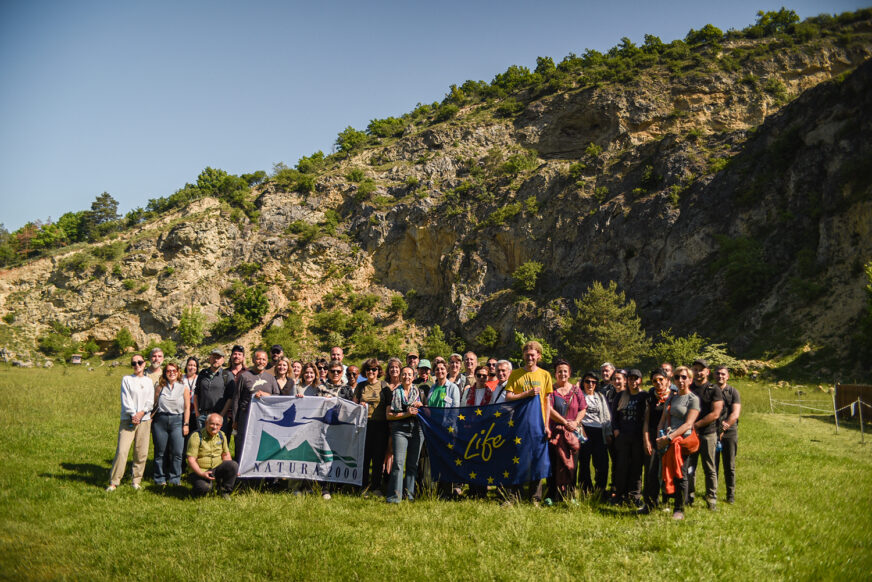
From April 28–30, 2025, government officials, experts, and practitioners from the Eastern Partnership (EaP) countries gathered for a three-day international workshop in Bratislava that focused on enhancing the effectiveness of protected area systems across Europe and the EaP region. The event featured presentations, site visits, and animated discussions, offering valuable lessons for biodiversity conservation, sustainable development, and cross-border cooperation.
Day 1: Setting the Foundation for Effective Conservation
The workshop opened with introductory remarks that framed the event’s goals of collaboration, learning, and practical outcomes.
Discussions explored the transition of Baltic and Central European states from post-Soviet systems to the Natura 2000 framework, emphasizing the role of EU accession in driving legal and institutional reforms. A detailed roadmap for protected area governance was outlined, highlighting the importance of aligning national efforts with EU requirements, involving stakeholders, and adopting adaptive management approaches. Examples from across Europe illustrated diverse conservation practices, with an emphasis on locally tailored and clearly defined goals. The need for transparent stakeholder roles was underscored, supported by national case studies demonstrating the benefits of inclusive conservation strategies. Further examination focused on the economic aspects of protected areas and the complexities of forest management within Natura 2000 sites, stressing the value of context-sensitive, voluntary conservation approaches to help reduce conflicts.
Day 2: Field Visit to Natura 2000 Sites
Participants explored several Natura 2000 areas, including Devínska Kobyla, Devínske rameno, and the Rudava River. The group observed conservation efforts such as habitat restoration, sustainable tourism, and river naturalization.
On-site discussions highlighted a range of success factors: clear conservation targets, experts’ involvement, consistent monitoring, adequate funding, and strong stakeholder collaboration. The trip offered practical insights into managing ecological values while integrating local socio-economic interests.
Day 3: Sharing Regional Experience and Future Directions
The final day wrapped up the field trip and highlighted national practices from Armenia, Georgia, Moldova, and Ukraine. Armenia demonstrated successes in zoning, water management, and post-disturbance restoration, with the Khosrov Forest Reserve gaining European recognition. Georgia focused on community engagement, sustainable tourism, and adaptive zoning within national parks and landscapes. Moldova illustrated the connection between biodiversity conservation and local development through habitat restoration and Local Action Groups. Ukraine provided a poignant view of conservation during conflict, emphasizing resilience, biodiversity monitoring, and the importance of protected areas in ecological recovery.
In conclusion, updates on EU environmental policies were presented, including the European Green Deal and Biodiversity Strategy 2030. These frameworks emphasize the urgent need for member states to align their national conservation strategies with ambitious EU goals for biodiversity restoration and climate resilience.
This workshop served as a powerful platform for cross-border learning and cooperation, reinforcing the importance of integrated approaches in protected area management. The shared experiences and strategies discussed over these three days will help shape the future of the natural heritage in the Eastern Partnership region.
Interviews with national stakeholders on the Emerald Network: Armenia | Georgia | Republic of Moldova | Ukraine
Pictures from the event
Presentation slides:
28 April 2025
National PA systems in the new EU Member States: transitioning from post-Soviet legacies to Natura 2000 (Valts Vilnītis, Team Leader, ELLE)
Road map to a functional protected area system (Jan Černecký, State Nature Conservancy of the Slovak Republic)
Conservation and management of protected areas – from doing nothing to doing everything (Anete Pošiva-Bunkovska, Key Expert, ELLE)
Stakeholder roles in management of Protected Areas (Gatis Eriņš, Key Expert, ELLE)
Contribution of protected areas to economy (Anete Pošiva-Bunkovska, ELLE)
Forest management in Natura 2000 areas – a hot topic (Gatis Eriņš, Key Expert, ELLE)
30 April 2025
What’s new in the EU policies? (Ľuboš Halada, Slovak Academy of Sciences)
Country presentations: Armenia | Georgia | Moldova | Ukraine





